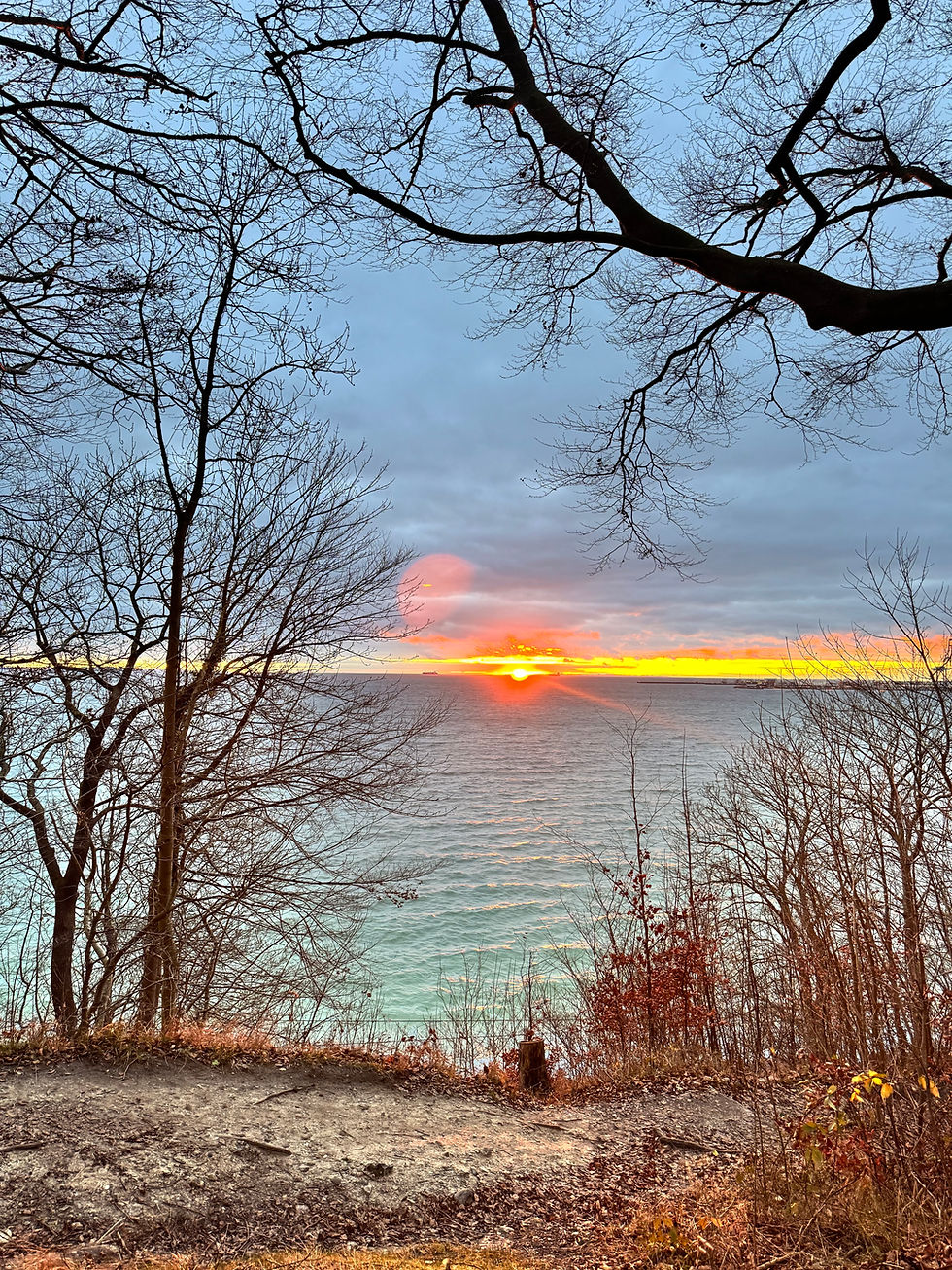The Sacred Purpose of No: A Compass for the Soul
- Ivana Petersen
- Aug 4, 2025
- 4 min read

I've been carrying this thought, this quiet rumination on the profound power of two simple words: yes and no. In the nomadic tapestry of our traveling life, amidst the ebb and flow of seasons and the ever-present dialogue with my own inner landscape, these words resonate with a universal hum. They are whispers in every language, yet their impact thunders across human connection. I've wanted to give them voice, to cast them onto the page, but they've been elusive, slipping through my fingers like sand. Yet, here I am, trying. For lately, I've been revisiting the most tender places within, learning to articulate crucial, loving boundaries.
My journey into this understanding has been deeply touched by Marion Rose (and deeper Marshall Rosenbergs work in NVC that also inspired Marion’s work) and her transformative Marion Method. Her work, supporting human beings in communicating their needs, feelings, and willingness, speaks to a core truth I'm increasingly embracing. I feel the profound importance of "no," and at the same time, I recall the perplexity that arose when I first became a mother. Through years of parenting, stumbling upon unschooling, and diving deep into its philosophies, I began to unravel the layers of conditioning – from systems, families, culture, society, friends, and even my own fears.
This led me to deep inner work, where understanding one's own needs and boundaries emerged as an essential, yet often agonizing, frontier. It was one of the most difficult terrains to navigate, to relearn, to heal, to simply sit with. It brought with it the uncomfortable embrace of the unknown – an emptiness, confusion, and sometimes, a wave of sadness. I had witnessed a pervasive lack of boundaries in my own family, particularly with my mother, and in various friendships and relationships. So, when unschooling presented an alternative path of authenticity and freedom with my children, I unknowingly created a subtle illusion: the belief that I couldn't, or shouldn't, use the word "no."
I tested different ways of being a mother, navigating as best I could. But what truly bothered me wasn't the desire to not use "no"; it was the way I had been using it. I began to ask myself: Why do I want to say no? Is it for safety? Is it to avoid something unpleasant, something not truly mine? This process, this excavation, helped me shed some of the old leaves, some of the automatized, limiting ways I had wielded "no."
Then, I encountered the concept of loving limits, and a profound truth dawned: "no" is actually a compass. It points to your willingness, to what is alive within you. Today, I've reached a place where yes and no stand as equally valued partners in the dance of life. Like any true relationship, one sometimes leads, the other follows. For every "yes," there is also a "no," and vice versa.
The word "no" holds such immense importance in every aspect of our lives. It is not something to be unpleasant, to harm or hurt. It is, in its essence, a gift of freedom – the freedom to be just as you are. Communicating our limits and boundaries is a profoundly important act. For me, now, using the word "no" and all that lies behind it, is an intention that grants me the freedom to be authentically myself. It is the most beautiful and kind act of self-love, and in its purest form, a collective love for the higher good.
When we grant each other the right to use "no" freely, without excessive explanation or justification, we are essentially allowing ourselves to enter into the deep space of who we are, what we truly want, and how we genuinely wish to live. This "no" is an essential word, and it must be allowed – in parenting, in all the diverse relationships we cultivate over time.
Echoes and Resonances: The Unpacking of "No"
If you've ever found it difficult to hear "no" or to accept it, perhaps it's an invitation to look deeper within. Why does it trigger you? Why does it make you feel uncomfortable? Where does that reaction come from? Often, the "no" from others has nothing to do with you, but everything to do with them. They are entitled to use it as often as they need to.
At the same time, there are myriad ways to communicate "no" in a loving way. I deeply believe we need to cultivate these verbal and non-verbal pathways so we can all feel safe in that space, holding and respecting each other's boundaries. This is what I feel compelled to write about today: this sacred purpose of "no."
Its profound significance in our inner work has never been more vital, especially as we learn and relearn about our own boundaries, aiming to pass this wisdom onto our children and future generations. It's also perfectly normal for our boundaries to be crossed or disrespected at times. Yet, in those moments, we should always unconditionally strive to feel and respect each other's boundaries.
What does "no" feel like in your own heart today? Where is it asking you to draw a gentle line, or to fiercely protect your space?




Comments